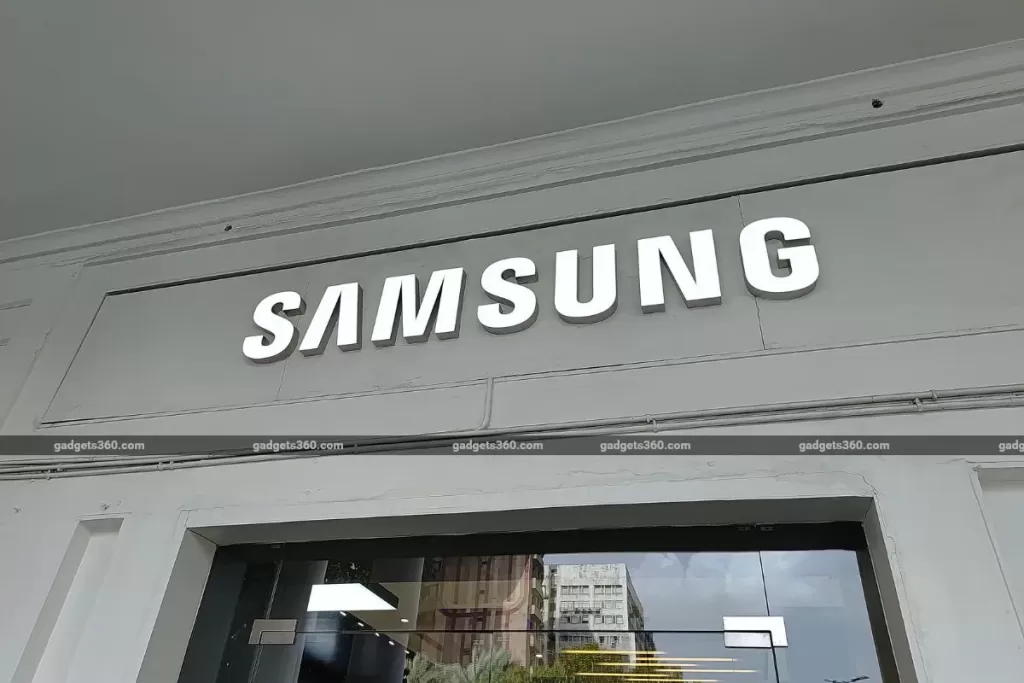Introduction: Samsung Liner AI Investment
In a significant move to enhance educational technology, Samsung Venture has backed Liner, an AI-driven search engine that promises to revolutionize how students and researchers access credible academic information. This investment of $29 million is aimed at refining Liner’s capabilities and expanding its reach, especially in the U.S. market, which has shown an insatiable demand for reliable academic tools.

The Vision Behind Liner
Liner is not just another AI chatbot; it is a dedicated academic tool designed with the needs of students and researchers in mind. Launched in 2023, Liner aims to deliver trustworthy information by filtering results from academic papers, government databases, and credible sources, thereby eliminating irrelevant or inaccurate data often found in general-use AI services like ChatGPT.
Co-founders Luke Jinu Kim and Chanmin Woo envisioned a platform that prioritizes quality over quantity. “It’s a new type of search engine. There’s no junk, only valuable information,” stated Kim, who emphasizes that Liner is developed for various academic disciplines, including medicine, engineering, humanities, and history. This targeted approach not only saves time for users but also ensures they are accessing validated and peer-reviewed materials.
Rapid Growth and User Base
Since its inception, Liner has experienced explosive growth, particularly in higher education institutions across the United States. With over 10 million users, including students and faculty from prestigious universities like UC Berkeley, Texas A&M, and the University of Southern California, Liner is rapidly establishing itself as a go-to resource for academic inquiries. According to Kim, approximately two-thirds of its paying users are based in the U.S., highlighting the platform’s relevance in American academia.
Tailored Query Functionality
One of Liner’s standout features is its ability to handle complex queries with ease. Users can ask intricate questions such as, “What are the key literary devices in Hamlet’s ‘to be or not to be’ soliloquy and what is their significance?” or “How do you calculate the heat loss through a wall given a material’s thermal conductivity, thickness, and temperature difference?” By utilizing generative AI, Liner customizes large language models to assess the validity of information, ensuring that students receive well-rounded and accurate answers.
Investment and Future Plans
The recent Series B funding round, led by Samsung Venture alongside Atinum Investment and Intervest, marks a significant milestone for Liner. This investment brings the startup’s total funding to $33 million, enabling it to broaden its capabilities and increase its workforce. With plans to expand its team in San Francisco, Liner is poised for further growth in the competitive ed-tech landscape.
The Founders’ Journey
The journey of Liner began more than a decade ago when co-founders Kim and Woo were undergraduates themselves. They created a browser extension that filtered web search results to show only relevant content. Inspired by the launch of ChatGPT in late 2022, they seized the opportunity to develop a specialized chatbot that addresses the common pitfalls of general AI tools, such as inaccuracies and “hallucinations.”
Expert Opinions on the Impact of Liner
Experts in the fields of education and artificial intelligence have lauded Liner for its innovative approach to academic research. According to Dr. Emily Carson, an education technology researcher at Stanford University, “Liner addresses a crucial gap in the market for academic resources. It’s about time we had an AI tool that prioritizes accuracy and credibility.” Similarly, Professor Mark Smith from Harvard University stated, “In an era where misinformation is rampant, platforms like Liner are essential for fostering a culture of informed research.”
Conclusion
Samsung’s strategic investment in Liner marks a pivotal moment in the realm of educational technology. By supporting a platform that emphasizes credible academic information, Samsung is not just investing in a company; it’s endorsing a future where students and researchers can navigate the complex world of information with confidence. As Liner continues to grow and evolve, it holds the promise of redefining academic research, making quality information more accessible to all.
Timeline of Key Developments
- 2012: Founders Luke Jinu Kim and Chanmin Woo develop a browser extension aimed at filtering search results.
- 2022: The release of ChatGPT sparks the idea to create a more disciplined AI chatbot.
- 2023: Liner officially launches, focusing on academic inquiries and reliable information retrieval.
- October 2024: Samsung Venture invests $29 million, enabling further expansion and product refinement.
📚 Take Your Trading And Financial Skills to the Next Level!
If you enjoyed this post, dive deeper with our Profitable Trader Series—a step-by-step guide to mastering the stock market.
- Stock Market 101: Profits with Candlesticks
- Stock Market 201: Profits with Chart Patterns
- Stock Market 301: Advanced Trade Sheets
Start your journey now!
👉 Explore the Series Here
For Regular Tech News and Updates Follow- Dot Com
FAQs
Here are five FAQs along with their answers:
Q1: What is Liner? A1: Liner is an AI-driven search engine designed specifically for students and researchers to access credible academic information.
Q2: How does Liner ensure the reliability of its information? A2: Liner filters search results to include only credible sources such as academic papers and government databases, eliminating irrelevant content.
Q3: Who are the founders of Liner? A3: Liner was founded by Luke Jinu Kim and Chanmin Woo, who initially created a browser extension to enhance search results for academic inquiries.
Q4: What academic disciplines does Liner cover? A4: Liner covers a wide range of academic disciplines, including medicine, engineering, humanities, and history.
Q5: What is the significance of Samsung’s investment in Liner? A5: Samsung’s investment signifies a commitment to advancing educational technology and supporting platforms that promote credible academic research.